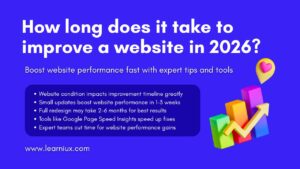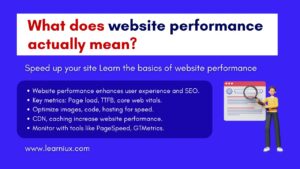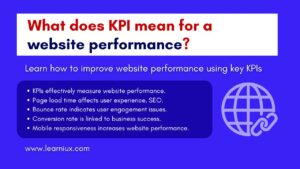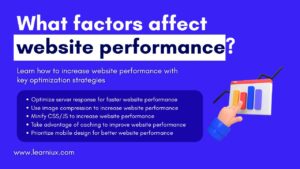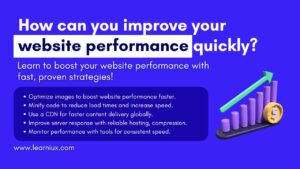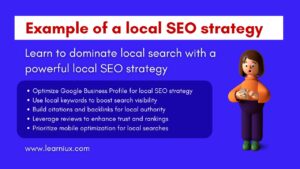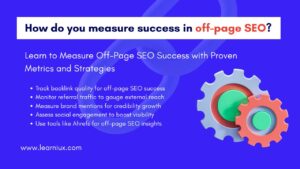Introduction
In the fast-paced world of online retail, standing out is a challenge for every e-commerce business. With millions of websites competing for attention, search engine optimization (SEO) has become a cornerstone for driving organic traffic and increasing sales. For e-commerce sites, SEO isn’t just about ranking high on search engines, it’s about attracting the right customers, showcasing products effectively, and converting clicks into conversions. But are there tools specifically designed to meet the unique SEO needs of e-commerce platforms? The answer is a resounding yes. From managing extensive product catalogs to optimizing dynamic pages, specialized SEO tools exist to address the complexities of online stores. This comprehensive guide explores the best SEO tools built for e-commerce, their features, benefits, and how to leverage them for success. Whether you’re running a small Shopify store or a large WooCommerce enterprise, these tools can help you grow your online presence.

Understanding SEO Tools for E-Commerce Sites
SEO tools are software solutions designed to improve a website’s visibility on search engines like Google, Bing, and Yahoo. For e-commerce sites, these tools go beyond general SEO practices, addressing specific challenges such as product page optimization, inventory management, and user experience. Unlike traditional websites, e-commerce platforms often deal with thousands of pages, frequent content updates, and the need to rank for highly competitive product-related keywords. SEO tools for e-commerce are built to handle these complexities, offering features such as keyword research, technical audits, competitor analysis, and integration with popular e-commerce platforms such as Shopify, WooCommerce, Magento, and BigCommerce.
The primary goal of these tools is to help online stores attract organic traffic, improve user engagement, and ultimately increase sales. They provide actionable insights into site performance, identify technical issues, and suggest optimizations to align with search engine algorithms. With a focus on e-commerce-specific needs, these tools ensure that product descriptions, category pages, and checkout processes are optimized for both search engines and customers.
Key Features of SEO Tools for E-Commerce
SEO tools designed for e-commerce come with features that cater to the unique structure of online stores. Here are some key functionalities to look out for:
- Keyword Research and Optimization: E-commerce sites rely heavily on product-specific keywords. SEO tools help identify high-traffic, low-competition keywords to target for product pages, categories, and blog content. They also suggest long-tail keywords, which are important for attracting a specific audience.
- On-Page SEO Analysis: These tools analyze product descriptions, meta tags, titles, and images to ensure they are optimized for search engines. They often provide recommendations for improving content relevance and keyword density.
- Technical SEO Audit: E-commerce sites often face issues like duplicate content, broken links, or slow page speed due to large inventories. SEO tools conduct site audits to identify and fix these issues, ensuring a seamless user experience.
- Backlink Analysis: Building a strong backlink profile is essential for authority. SEO tools track backlinks, analyze competitors’ link strategies, and suggest opportunities for link-building campaigns.
- Platform Integration: Many tools integrate directly with e-commerce platforms, allowing for seamless optimization of product listings, categories, and site structure without manual coding.
- Analytics and Reporting: Detailed reports on organic traffic, keyword rankings, and conversion rates help store owners measure the impact of their SEO efforts and adjust strategies accordingly.
- Schema Markup Support: Schema markup enhances how products appear in search results, such as displaying star ratings or pricing information. Many SEO tools automate this process for e-commerce sites.
- Competitor Analysis: Understanding what your competitors are doing is key to staying ahead. SEO tools provide insight into your competitors’ keyword strategies, content approaches, and backlink profiles.
Why e-commerce needs specialized SEO tools
While general SEO tools like Google Analytics or Yoast SEO are valuable, they lack the depth required for e-commerce. Online stores face unique challenges, such as managing thousands of product pages, handling seasonal inventory changes, and optimizing for transactional queries (e.g., “buy running shoes online”). Specialized SEO tools solve these problems by providing customized solutions. For example, they can handle dynamic content like product availability or price updates, which general tools cannot prioritize. Additionally, e-commerce SEO tools focus on conversion optimization, which ensures that traffic not only reaches the site but also leads to purchases. This dual focus on visibility and conversions sets them apart from standard SEO software.
Top SEO Tools Recommended for E-Commerce Sites
Many SEO tools stand out for their ability to meet the needs of e-commerce. Below, we look at some of the most effective options, highlighting their features, advantages, and potential disadvantages. Each tool has been selected based on its relevance to online retail and its ability to deliver results.
AIOSEO as a Leading SEO Tool for E-Commerce
All in One SEO (AIOSEO) is a popular choice for e-commerce sites, especially those built on WordPress and WooCommerce. Its seamless integration with WooCommerce makes it a go-to tool for optimizing product pages, categories, and tags. AIOSEO offers a user-friendly interface, making it accessible to beginners while providing advanced features for experienced marketers.
- Key Features: AIOSEO supports schema markup for rich snippets, which can display product ratings, prices, and availability in search results. It also includes on-page SEO recommendations, XML sitemap generation, and social media integration for sharing product pages.
- Pros: Easy setup, affordable pricing, and strong WooCommerce support. Its local SEO features are ideal for businesses with a physical store along with online operations.
- Cons: Limited competitor analysis compared to tools like Semrush or Ahrefs. Advanced features require a paid plan.
- Price: Starts at around $49.50 per year for the basic plan, with higher tiers offering more features.
AIOSEO is ideal for small to medium-sized e-commerce businesses looking for a comprehensive solution without any learning curve.
SEMrush for Comprehensive SEO Tools in E-Commerce
SEMrush is a powerhouse in the SEO world, offering a comprehensive set of tools that serve e-commerce sites. Its strengths lie in keyword research, competitor analysis, and content marketing, making it a favorite among large online stores.
- Key Features: SEMrush’s Keyword Magic tool identifies high-value keywords, while its Site Audit feature detects technical issues like broken links or slow-loading pages. The platform also offers competitor analysis, tracking of competitor keyword rankings, and backlink opportunities.
- Pros: Extensive database for keyword and competitor research, detailed reporting, and integration with platforms like Shopify. Its content marketing tools help create SEO-friendly product descriptions.
- Cons: The interface can be overwhelming for beginners, and the price is higher than some alternatives.
- Price: Starts at around $129.95 per month, with discounts for annual plans.
SEMrush is best suited for established e-commerce businesses looking to boost their SEO efforts with a dedicated marketing team.
Ahrefs Among the Essential SEO Tools for E-Commerce Growth
Ahrefs is known for its backlink analysis and site exploration capabilities, making it a top choice for e-commerce sites looking to build authority. Its robust tools help online stores identify link-building opportunities and optimize content for better rankings.
- Key Features: Ahrefs’ Site Explorer provides insights into backlinks, organic traffic, and top-performing pages. Its Keyword Explorer helps find product-specific keywords, and the Content Explorer identifies trending topics for blog strategies.
- Pros: Unrivaled backlink analysis, detailed competitor insights, and a clean interface. It’s especially effective for scaling e-commerce sites.
- Cons: Limited on-page SEO features compared to AIOSEO. Pricing can be prohibitive for small businesses.
- Price: Starts at around $99 per month, with higher plans offering more data.
Ahrefs is perfect for e-commerce sites that focus on building a strong backlink profile and conducting in-depth competitor research.
Other Notable SEO Tools Built for E-Commerce
In addition to the top three tools, several other tools are notable for their unique offerings:
- Groove Commerce AI Integrations: Groove Commerce uses AI-powered insights to optimize e-commerce sites, especially for Shopify and BigCommerce. Its focus on automation makes it ideal for businesses with large inventories.
- Printify SEO Recommendations: Printify offers SEO guidance for print-on-demand stores, including keyword suggestions and product page optimization tips.
- StackInfluence for Marketing Synergy: StackInfluence combines influencer marketing with SEO, helping e-commerce sites increase visibility through collaboration and content strategies.
These tools are great for specific e-commerce businesses or those looking to supplement their primary SEO tools with specialized features.
How to Effectively Implement SEO Tools on E-Commerce Sites
Choosing the right SEO tool is only half the battle; implementing it effectively is the key to success. Here’s a step-by-step guide to getting the most out of SEO tools for your e-commerce site:
- Set clear goals: Define what you want to achieve, whether it’s increasing organic traffic, improving product page rankings, or increasing conversions. Align your tool selection with these goals.
- Audit your site: Use your chosen SEO tool to conduct a comprehensive audit. Identify issues like duplicate content, slow page speed, or missing meta tags, and prioritize fixes based on the results.
- Optimize product pages: Leverage keyword research tools to find relevant terms for product titles, descriptions, and alt text. Make sure each page is unique to avoid duplicate content penalties.
- Integrate with your platform: Most tools offer plugins or integrations for e-commerce platforms. Install and configure these to streamline optimization tasks.
- Monitor and adjust: Review analytics reports regularly to track progress. See improvements in keyword rankings, traffic, and conversion rates, and tweak strategies as needed.
Integrating SEO Tools with E-Commerce Platforms
Integration is key to seamless SEO management. Tools like AIOSEO and Semrush offer plugins for platforms like WooCommerce and Shopify, allowing you to optimize directly from your dashboard. For example, AIOSEO’s WooCommerce integration lets you add schema markup without coding, while Semrush’s Shopify app provides keyword insights into the platform. When integrating, ensure compatibility with your platform version and test for conflicts with other plugins. Regular updates to both the tool and the platform are essential to maintain performance.
Measuring Success Using SEO Tools in E-Commerce
To measure the effectiveness of SEO tools, track key performance indicators (KPIs) such as:
- Organic Traffic: Look at the growth in the number of visitors coming from search engines using tools like Google Analytics or SEMrush.
- Keyword Rankings: Check if targeted keywords are climbing the search results pages.
- Conversion Rates: Measure how many visitors complete a purchase, sign up for newsletters, or engage with your site.
- Bounce Rates: A low bounce rate indicates a good user experience and content relevance.
Most SEO tools provide dashboards to visualize these metrics, helping you identify trends and areas for improvement.
Benefits of Adopting SEO Tools for E-Commerce Success
Investing in SEO tools offers many benefits for e-commerce businesses:
- Increased search visibility: Optimized product pages and categories rank higher, attracting more potential customers.
- Cost savings: Organic traffic reduces reliance on paid advertising, offering long-term savings.
- Improved user experience: Tools identify and fix issues like slow load times, increasing customer satisfaction.
- Competitive edge: Insights into competitor strategies help you stay ahead in crowded markets.
- Scalability: As your store grows, SEO tools can handle larger catalogs and more complex site structures.
For example, a Shopify store using AIOSEO saw a 30% increase in organic traffic in three months by optimizing product descriptions and implementing schema markup. Similarly, Magento stores are taking advantage of this.
Conclusion
SEO tools designed for e-commerce sites are essential for increasing online visibility and increasing sales. From keyword research to technical audits, tools like AIOSEO, Semrush, and Ahrefs offer specialized features to address the unique challenges of online stores, such as optimizing product pages and managing large inventories. These tools help businesses drive organic traffic, improve user experience, and stay competitive in a crowded marketplace. By addressing issues like duplicate content and slow load times, they ensure e-commerce platforms rank higher and convert visitors into customers.
Choosing the right SEO tool depends on the size of your business, platform, and goals. Smaller stores can benefit from AIOSEO’s simplicity and affordability, while larger enterprises may prefer the comprehensive analytics of Semrush or the backlink expertise of Ahrefs. Integration with platforms like Shopify or WooCommerce makes implementation seamless, and tracking metrics like organic traffic and conversion rates helps measure success. Finding tools with free trials or basic plans allows you to test their effectiveness without a significant upfront investment.
Investing in SEO tools enables e-commerce businesses to strengthen their online presence and achieve long-term growth. Take the time to assess your needs, whether it’s improving product discoverability or expanding your store’s reach. Start with free trials to find the best fit and use these tools to optimize your site, outperform competitors, and convert clicks into loyal customers. With the right SEO strategy, your e-commerce business can thrive in an ever-evolving digital landscape.
FAQs
What are the best free SEO tools for e-commerce beginners?
Free SEO tools can be a great start for e-commerce beginners who want to optimize their sites without a big investment. Tools like Google Search Console provide insight into site performance, indexing issues, and keyword opportunities, making them ideal for new online stores. Ubersuggest offers basic keyword research and site audit features, helping to identify high-traffic terms and technical errors. The free version of Yoast SEO is great for WordPress-based stores, offering on-page optimization tips for product pages. These tools help beginners improve visibility and fix common issues like broken links or missing meta tags. However, free versions often have limited features, so businesses may need to upgrade for advanced functionality like competitor analysis. Exploring these tools can help beginners build a strong SEO foundation. For best results, combine several free tools to cover different aspects of e-commerce SEO. Always monitor your progress through analytics to ensure that your efforts are driving traffic and sales.
How do SEO tools for small vs. large e-commerce sites differ?
SEO tools for small and large e-commerce sites vary by scale, complexity, and budget. Small sites benefit from user-friendly tools like AIOSEO, which offers easy setup and WooCommerce integration for optimizing product pages. These tools focus on core features like meta tags and sitemaps, ideal for limited inventories. Large e-commerce sites with thousands of products need robust tools like SEMrush or Ahrefs for advanced keyword research and backlink analysis. These platforms handle dynamic content, large-scale audits, and competitor tracking to maintain rankings in competitive markets. Small businesses prioritize affordability and ease of use, while larger businesses need scalability and detailed analytics. Some tools like Moz do both, but offer tiered plans to match the size of your business. Choosing the right tool depends on your site’s needs and growth goals. Evaluate features and try free trials to find the best fit.
Can SEO tools for e-commerce products guarantee top search rankings?
No SEO tool can guarantee top search rankings, as rankings depend on a variety of factors, such as competition, content quality, and search engine algorithms. Tools like SEMrush or Ahrefs provide data-driven insights to optimize product pages, keywords, and backlinks, increasing the likelihood of higher rankings. They identify high-value keywords and technical issues, but success requires consistent effort and quality content. Search engines prioritize user experience, relevance, and authority, which tools can help improve but cannot control. For example, AIOSEO leverages schema markup to increase visibility in search results, but rankings also depend on customer engagement. Regular updates and competitor analysis are crucial to staying competitive. Tools provide a framework, but strategy and execution determine results. Businesses should combine tool insights with compelling product descriptions and a strong user experience. Monitor performance and adapt to algorithm changes for sustained success.
How do SEO tools integrate with e-commerce platforms like Shopify?
SEO tools integrate seamlessly with e-commerce platforms like Shopify to simplify optimization. Tools like AIOSEO and Yoast SEO offer plugins that connect directly to the Shopify or WooCommerce dashboard, allowing for easy edits to product titles, meta descriptions, and alt text. SEMrush provides a Shopify app for keyword research and performance tracking within the platform. These integrations simplify tasks like adding schema markup or creating sitemaps without coding. For example, AIOSEO automates rich snippets to display product ratings in search results. The integration ensures compatibility with platform updates, but testing for plugin conflicts is required. Most tools offer step-by-step setup guides for a smooth implementation. This connectivity saves time and helps maintain consistent SEO practices across large inventories. Always verify integration support before choosing a tool that matches your platform.
What metrics should e-commerce sites track using SEO tools?
E-commerce sites should track key metrics to measure SEO success and optimize performance. Organic traffic, tracked by Google Analytics or SEMrush, shows how many visitors come from search engines. Keyword rankings, tracked by Ahrefs or Moz, show how well product pages rank for targeted terms. Conversion rates, which show whether traffic leads to purchases, are used to assess ROI. Bounce rate, available in most SEO tools, highlights user engagement and site usability issues. Click-through rate (CTR) in tools like Google Search Console shows how engaging your search snippets are. Backlink quality, analyzed by Ahrefs, affects site authority. Page load speed, tracked by tools like Screaming Frog, affects user experience and rankings. Regularly reviewing these metrics can help identify trends and areas for improvement. Use dashboards in SEO tools to visualize data and refine your strategy.
Are SEO tools worth the investment for small e-commerce businesses?
SEO tools for small e-commerce businesses are often worth the investment, as they increase organic traffic and reduce reliance on paid advertising. Tools like AIOSEO or Ubersuggest offer affordable plans with features like keyword optimization and site audits tailored for small inventories. These tools can help improve product discoverability, which is crucial for competing with larger stores. Free options like Google Search Console provide valuable insights for budget-conscious businesses. The cost of paid tools is often offset by long-term traffic gains and higher conversions. For example, optimizing product pages can increase rankings, attracting more customers without the expense of advertising. However, businesses should choose tools that fit their budget and needs. Testing free trials ensures that the tool provides value before committing. With consistent use, SEO tools can provide a strong return on investment for small stores.
How do SEO tools help with competitor analysis for e-commerce?
SEO tools like SEMrush and Ahrefs excel at competitor analysis, giving e-commerce sites a competitive edge. They reveal competitors’ top-ranking keywords, allowing you to target similar terms for your products. Backlink analysis shows where competitors are earning links, helping you identify opportunities to build authority. Tools like Moz provide insight into competitors’ content strategies, such as popular blog topics or product page optimization. This data helps you refine your SEO approach to outperform your competitors. For example, Semrush’s Domain Overview compares your site’s performance to others, including those that are there to close gaps. Competitor analysis also reveals market trends, informs product or pricing strategies. Regular monitoring helps you stay ahead in dynamic markets. Leveraging these insights, e-commerce sites can create targeted campaigns to capture more market share.
Can SEO tools improve the mobile experience for e-commerce sites?
SEO tools play a key role in optimizing the mobile experience for e-commerce sites, which is important as mobile traffic continues to grow. Tools like Google PageSpeed Insights and Screaming Frog identify mobile-specific issues, such as slow load times or unresponsive designs. Semrush and AIOSEO provide recommendations for mobile-friendly meta tags and content formatting to enhance usability. Mobile optimization impacts rankings, as search engines prioritize mobile-first indexing. For example, the tools suggest compressing images or fixing navigation issues to improve the user experience. Analytics features track mobile traffic and bounce rates, revealing areas for improvement. Optimizing for mobile also increases conversions, as customers expect a seamless shopping experience on their devices. Regular audits ensure that your site remains mobile-friendly. Using these tools, e-commerce businesses can create a smooth, engaging mobile experience that drives sales.
How long does it take to see results from SEO tools for e-commerce?
The time it takes to see results from SEO tools depends on factors such as competition, site status, and strategy. Most e-commerce sites see improvements in traffic or rankings within 3 to 6 months of consistent optimization. Tools like Ahrefs or SEMrush can help identify quick fixes like broken links or missing meta tags, which can yield faster results. Keyword optimization and content updates can take longer to impact rankings, especially in competitive niches. Regular monitoring and adjustments guided by tool insights can accelerate progress. For example, implementing schema markup with AIOSEO can quickly increase click-through rates. Building backlinks, a slow process, builds authority over time. Patience and consistent effort are the keys to sustainable SEO success. Regularly tracking metrics helps you assess progress and refine strategies for better results.
Do SEO tools support multilingual e-commerce sites?
Yes, many SEO tools support multilingual e-commerce sites to optimize for global markets. Tools like SEMrush and Ahrefs offer keyword research for multiple languages, which helps target region-specific search terms. AIOSEO supports hreflang tags, which ensures that search engines display the correct language version to users. Site audits identify issues like broken links across language variants, maintaining a seamless experience. For example, SEMrush’s international SEO features analyze local competitors and search trends. Tools like Yoast SEO provide guidance for optimizing translated product pages. Multilingual support increases visibility in different markets, increasing traffic and sales. However, businesses should ensure accurate translations and cultural relevance in content. Using these tools, e-commerce sites can effectively reach a global audience while maintaining strong SEO performance.























